Dates: September 2-3, 2025
Venue: Online
Watch the Recording of Session 1
At the invitation of the Department of Political Science, St. Xavier’s College, which is affiliated to University of Mumbai, Dr. Beloo Mehra, Director, BhāratShakti conducted two sessions on the topic ‘Spiritual Nationalism of Sri Aurobindo’ with 35 students of B.A. (Political Science, Third Year). These sessions were part of their course titled ‘Political Thinkers of India’. A special unit focusing on Sri Aurobindo’s Thoughts on Nationalism was introduced this year in this course.
The initiative for introducing this important topic was taken by Dr. Pratiba Naithani, the Head of the Department, who in consultation with Dr. Beloo Mehra introduced the students to selected writings of Sri Aurobindo. The students also read two essays written by Dr. Mehra on Sri Aurobindo as a Yogi Revolutionary and Significance of Spiritual Nationalism for Today.
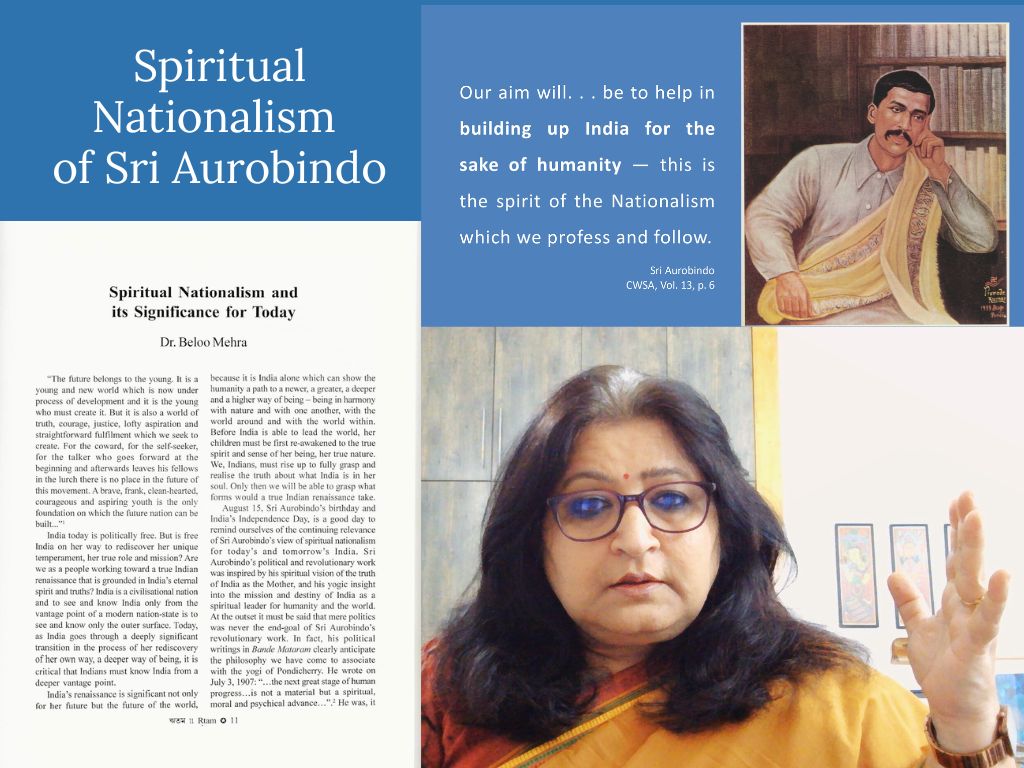
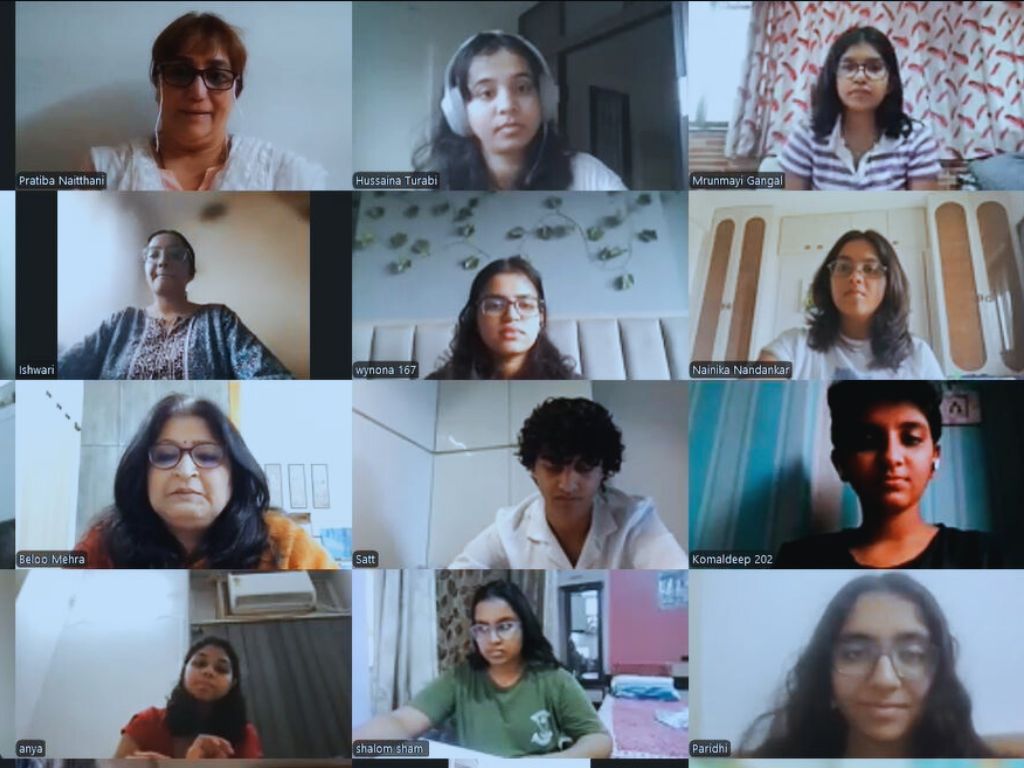
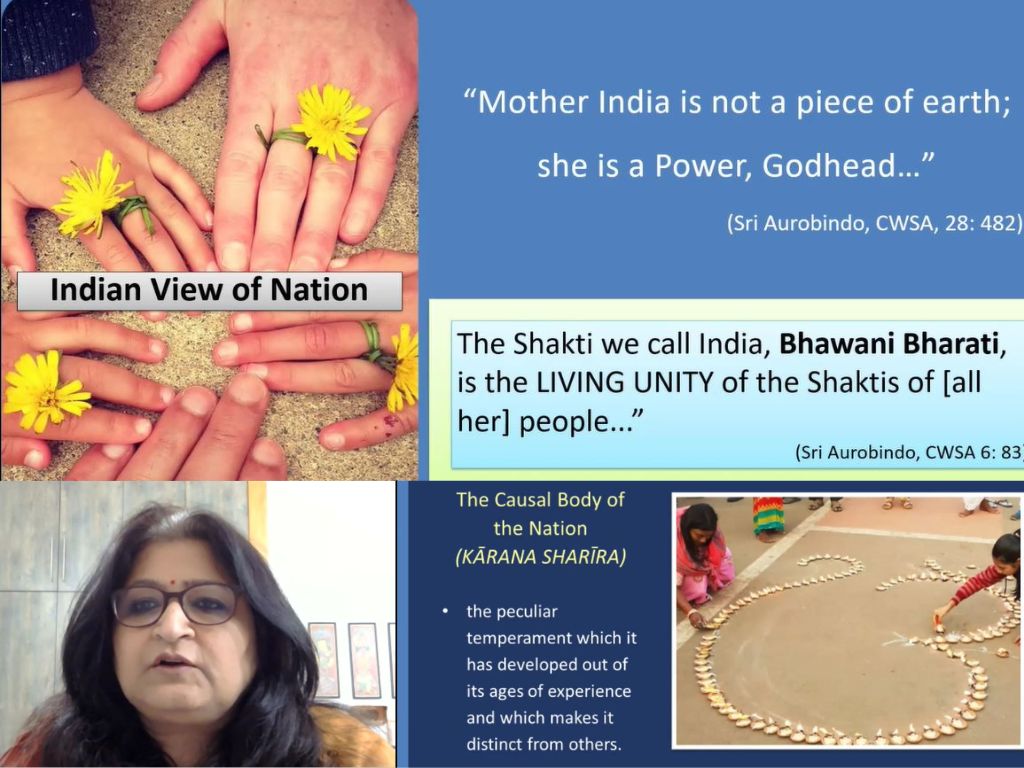
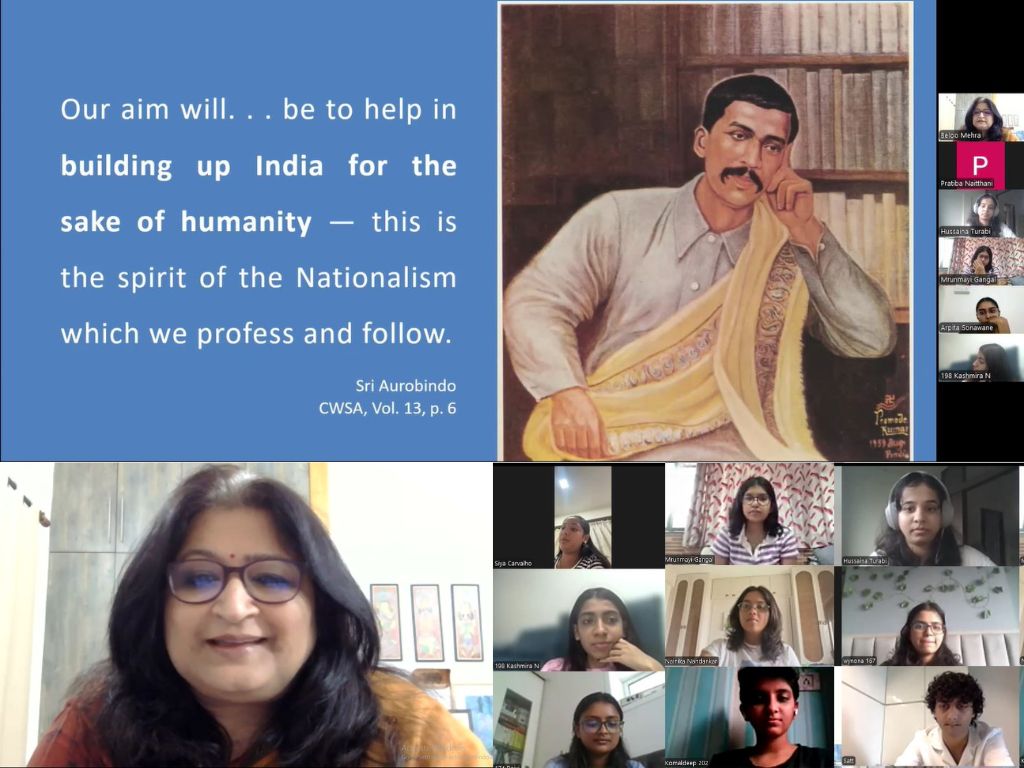
During the two online sessions, each being 1.5 hour long, Dr. Mehra gave a broad overview of what is Spiritual Nationalism according to Sri Aurobindo. She emphasised that it is important to explore two important questions – What is a Nation and What is National Temperament or Inmost Genius of a Nation or as Sri Aurobindo puts it, Nation-Soul. Once we have a grasp on these concepts, we can understand what Spiritual Nationalism means.
Dr. Mehra had selected a few relevant quotes from Sri Aurobindo to explore these two important questions. She gave plenty of examples to illustrate the three bodies of a nation that Sri Aurobindo discusses. She also emphasised that in Sri Aurobindo’s vision of Nationalism, like in the Indian spiritual vision, the largest unity envisaged is the unity or oneness of entire existence. But before we can arrive at that spiritual or inner vision of unity, it is important to preserve and revere the smaller unities.
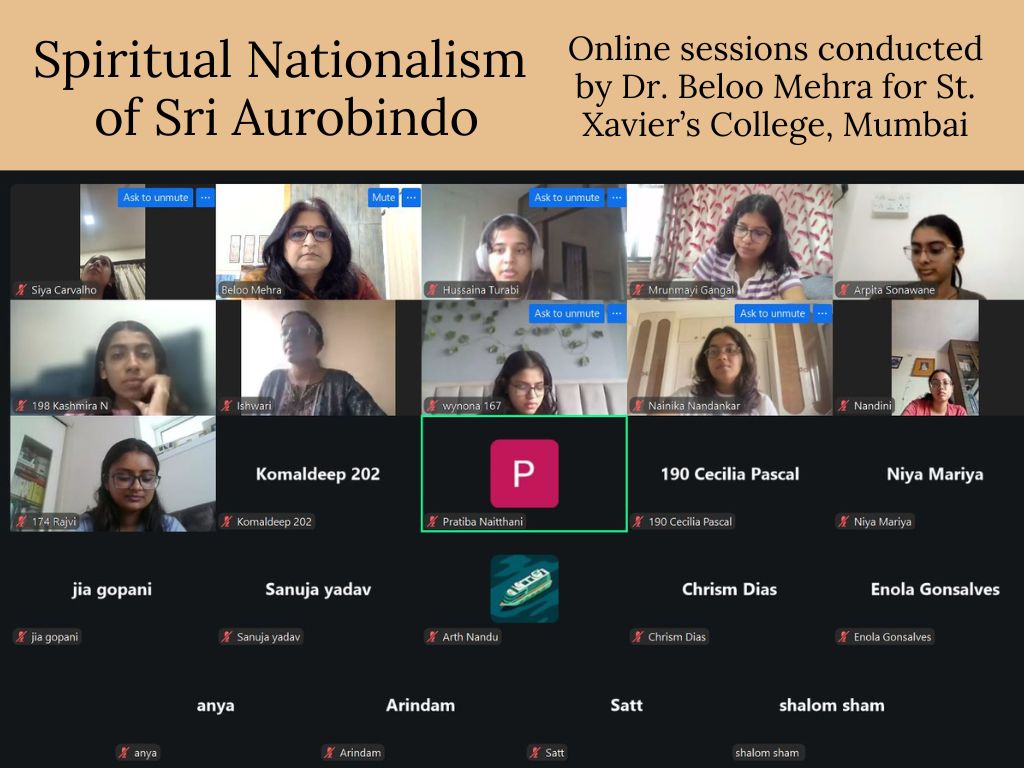
Nation, in this vision, becomes the largest psychological unity which must be considered a sacred entity worth preservation and strengthening if we have to gradually arrive at the unity of human race. Dr. Mehra elaborated on these points through relevant examples and anecdotes from the Indian Freedom Movement, Indian history and world history.
Two important documents – Sri Aurobindo’s Uttarpara Speech and his address on 14th August, 1947 – were elaborated upon to highlight several concepts – Dharma, Sanatana Dharma and its relation to India’s Nation-soul, Spirituality as Evolution of Consciousness and Vision of a larger human unity. Examples related to Auroville were also brought in to explain some of the points. Sri Aurobindo’s transformative spiritual realizations in the prison were discussed to highlight the relation between India’s rise and the rise of Sanatana Dharma, and also to explain India’s destined work for the future of humanity.
Dr. Mehra kept both the sessions interactive by allowing students to ask as many questions as they wanted. Several concepts related to India’s unity, role of shared memories in national identity, India’s role as vishwaguru, Sri Aurobindo’s views on non-violence, inter-religious harmony vis-a-vis spiritual nationalism, meaning of Dharma, difference between dharma and religion and many other topics covered during Dr. Mehra’s presentations were discussed via these interactions.
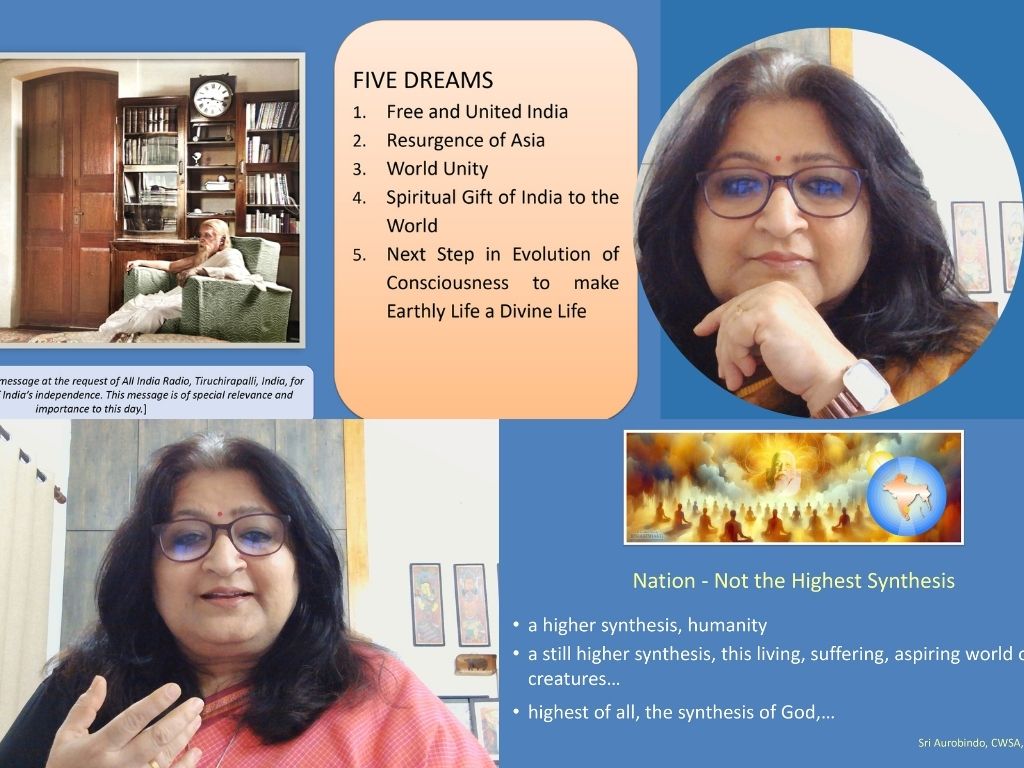
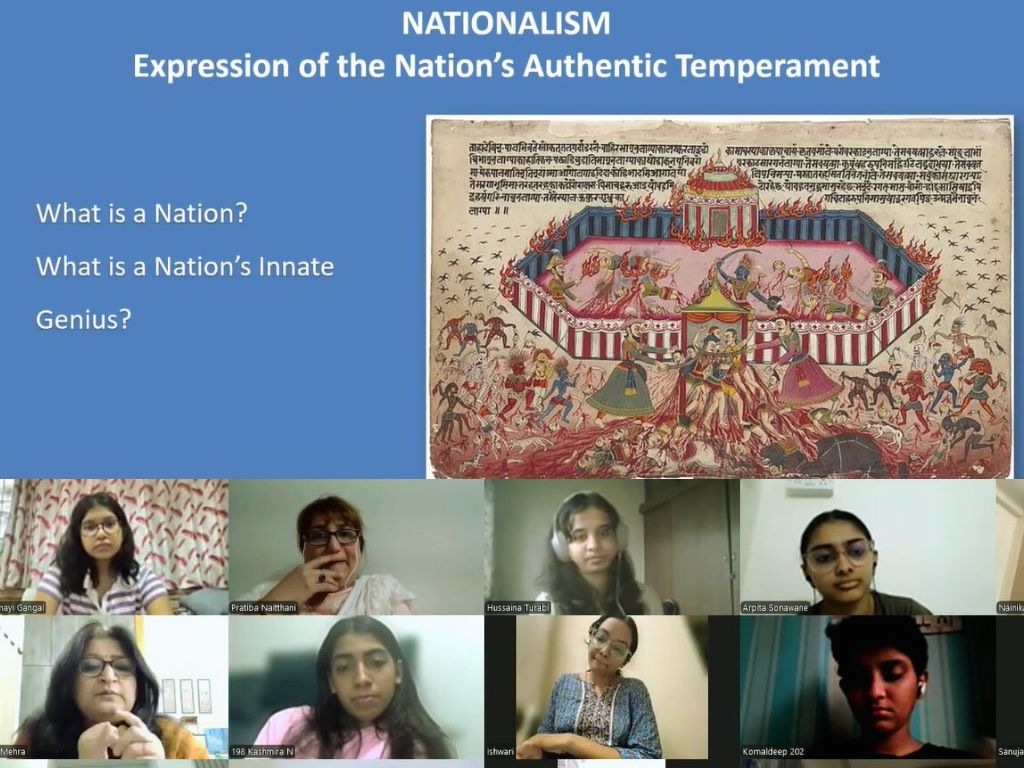
A total of 35 students enrolled in B.A. Political Science (Third year) participated in these 2 sessions. The overall response of the students was very positive. Dr. Pratiba Naithani thanked Dr. Mehra for the highly thought-provoking sessions. And she encouraged students to write papers on some of the topics explored during the online sessions.
